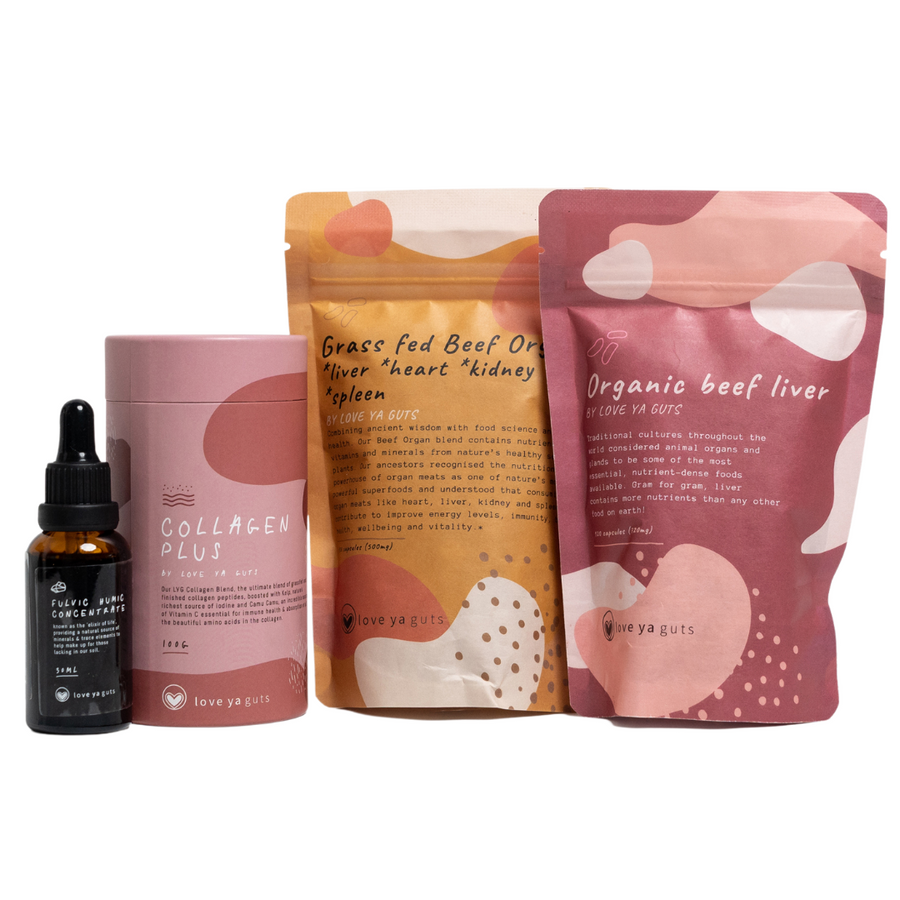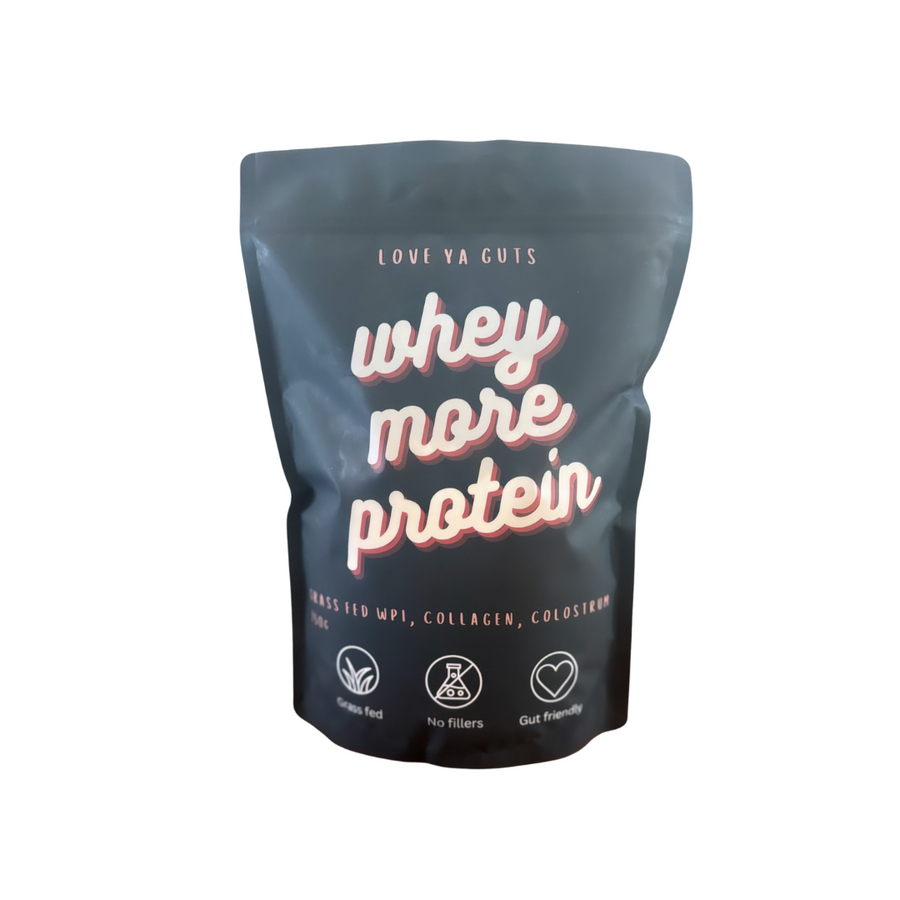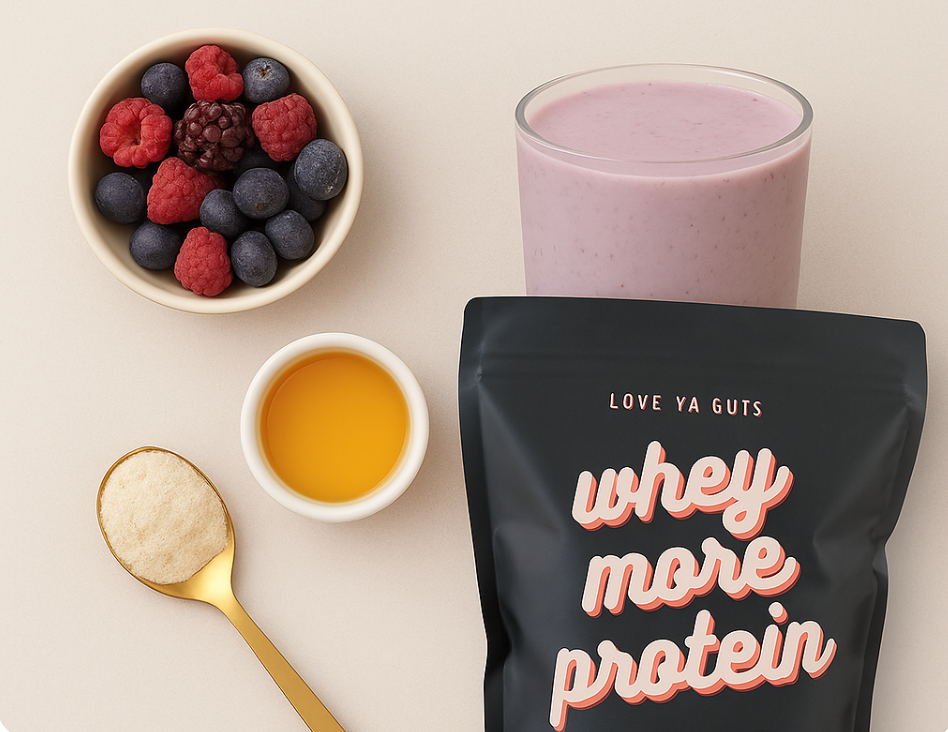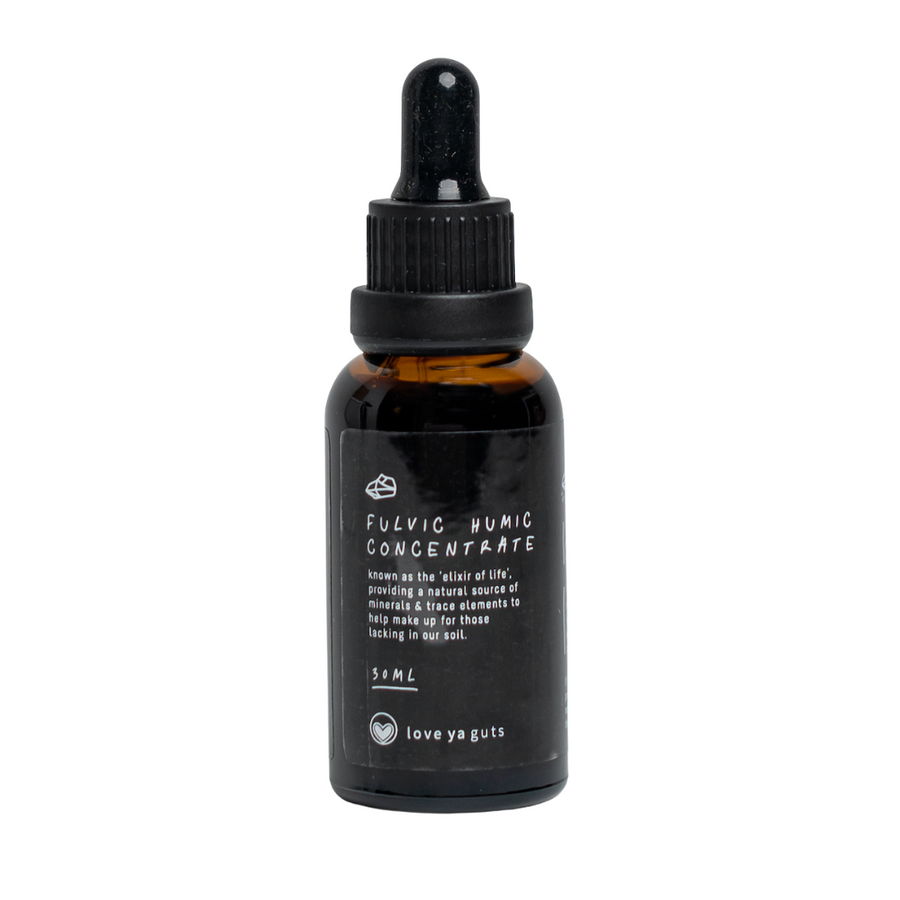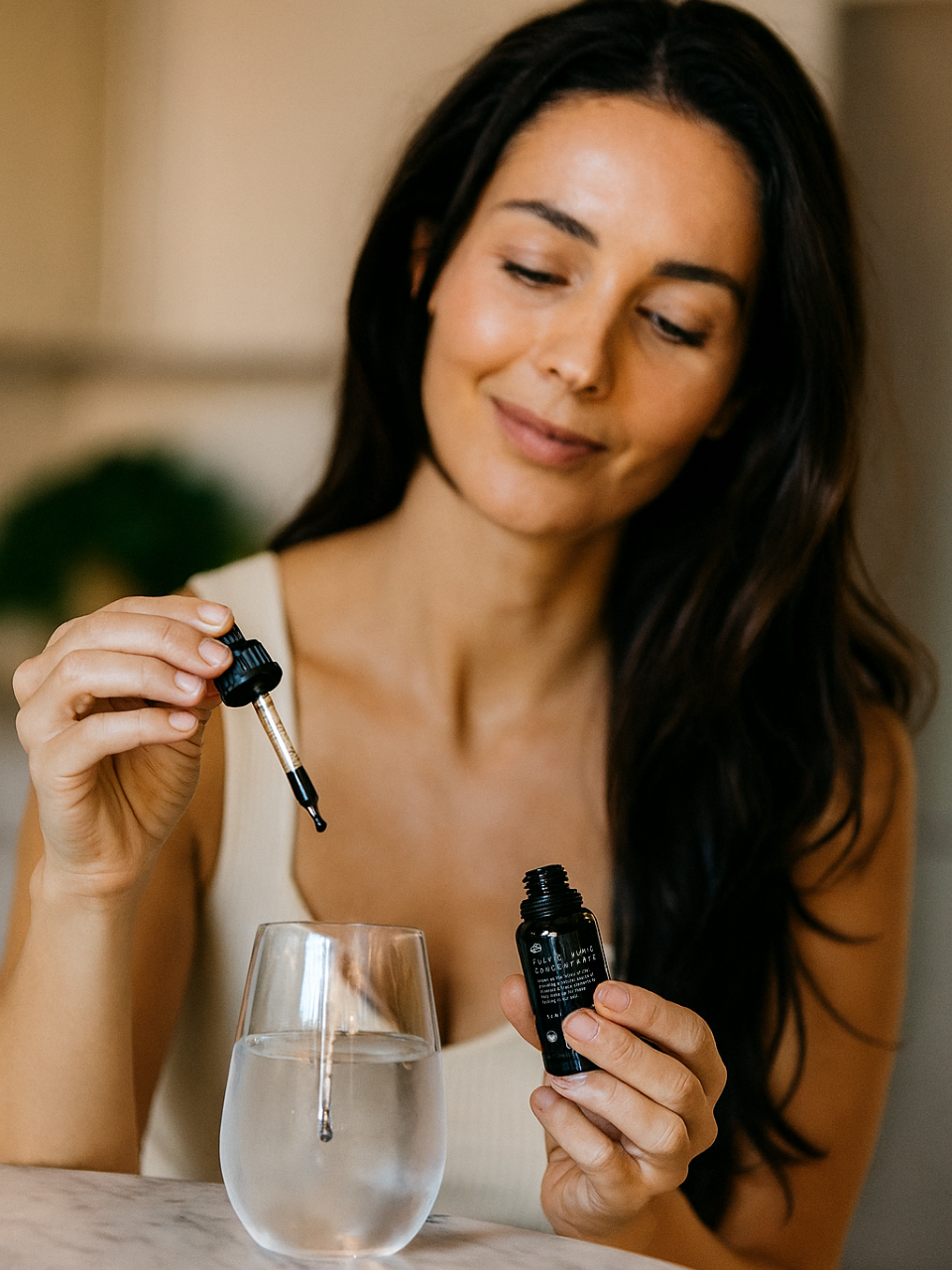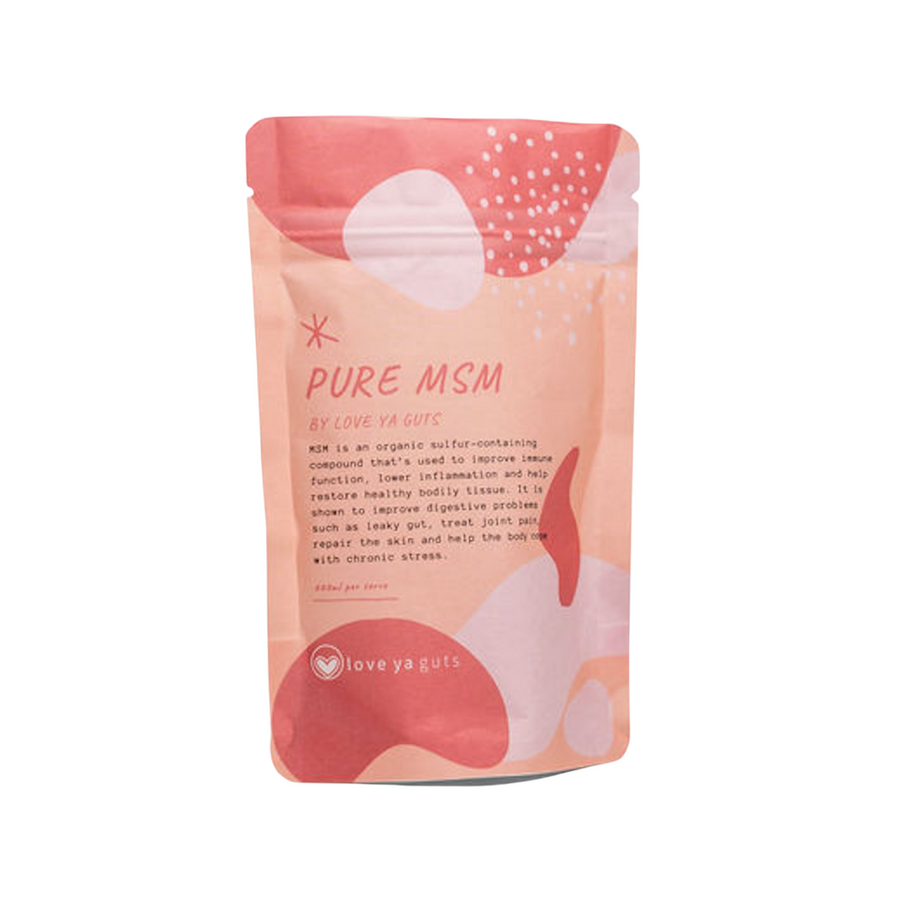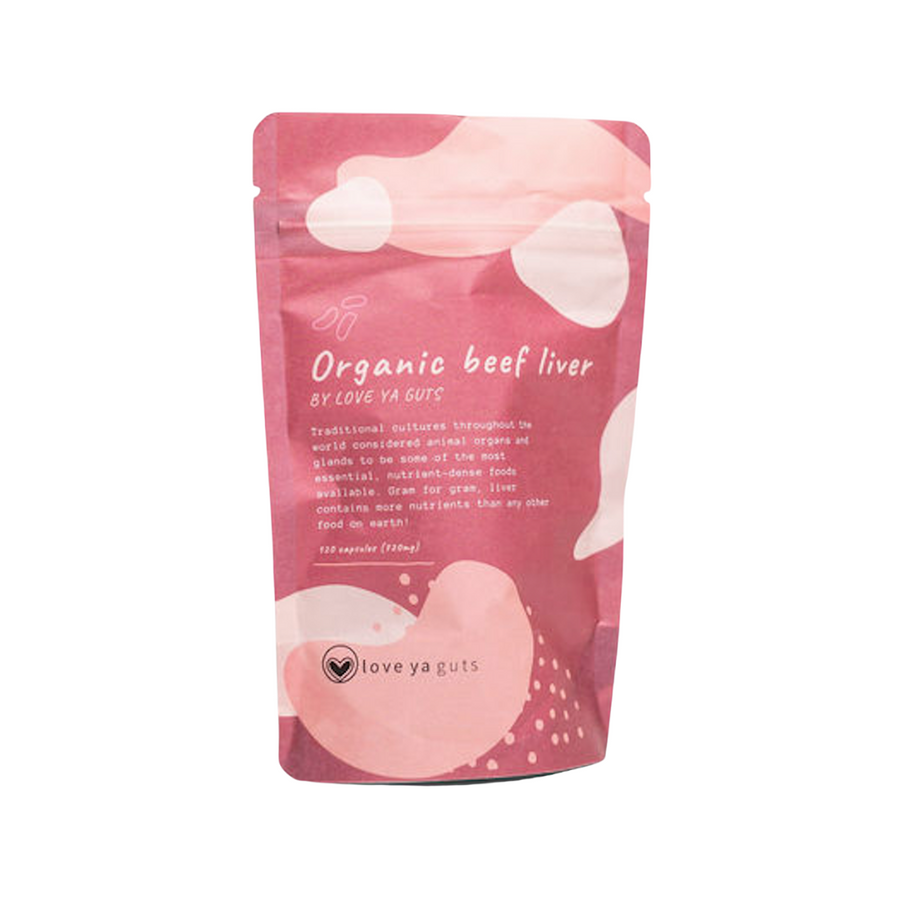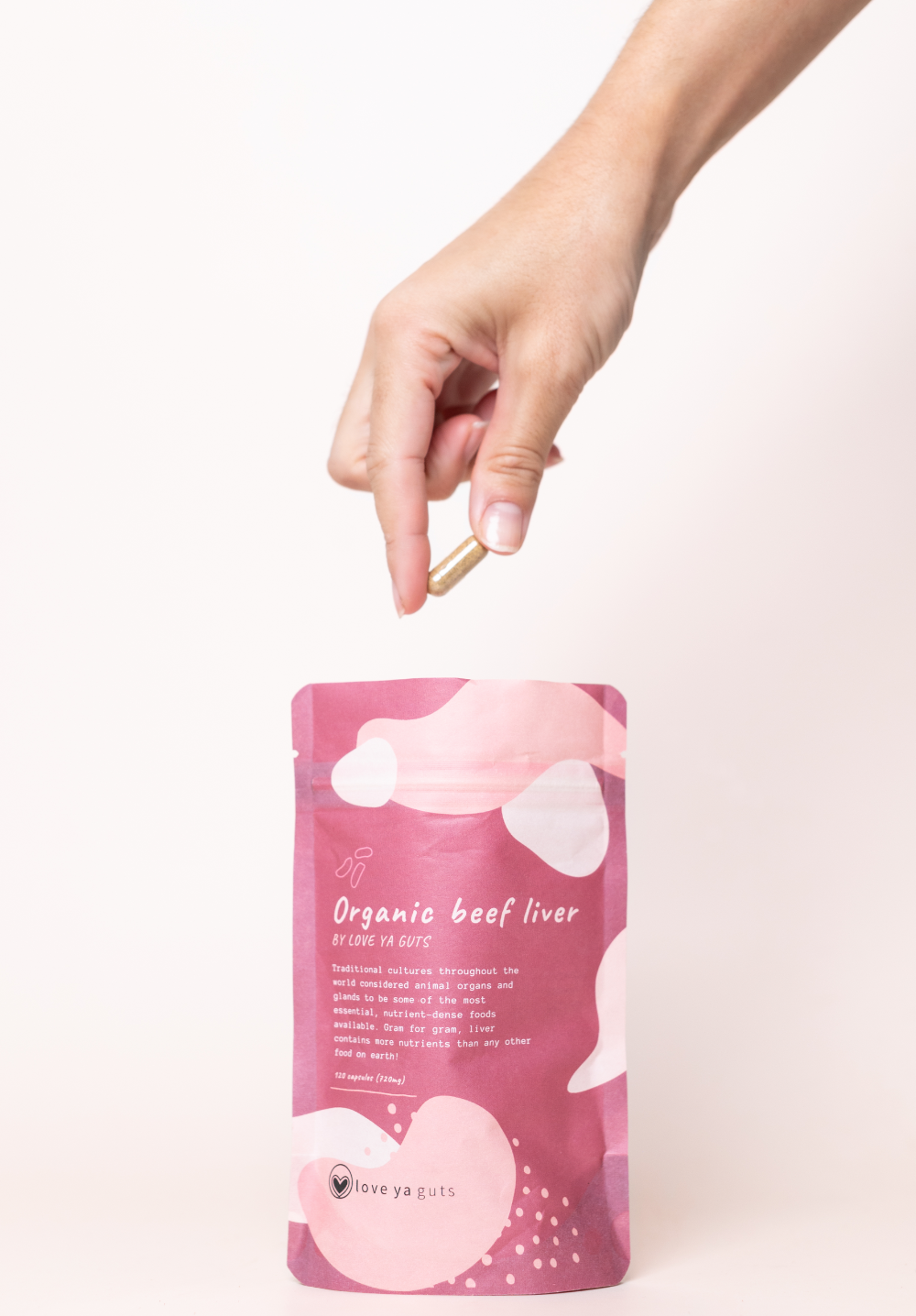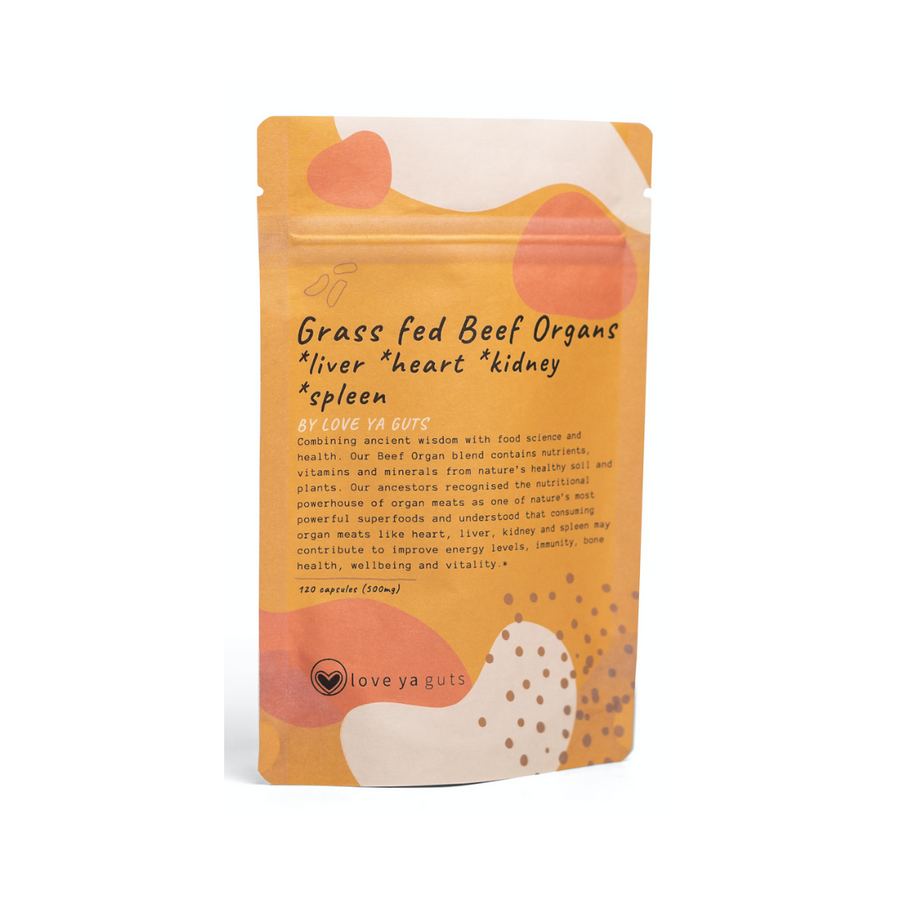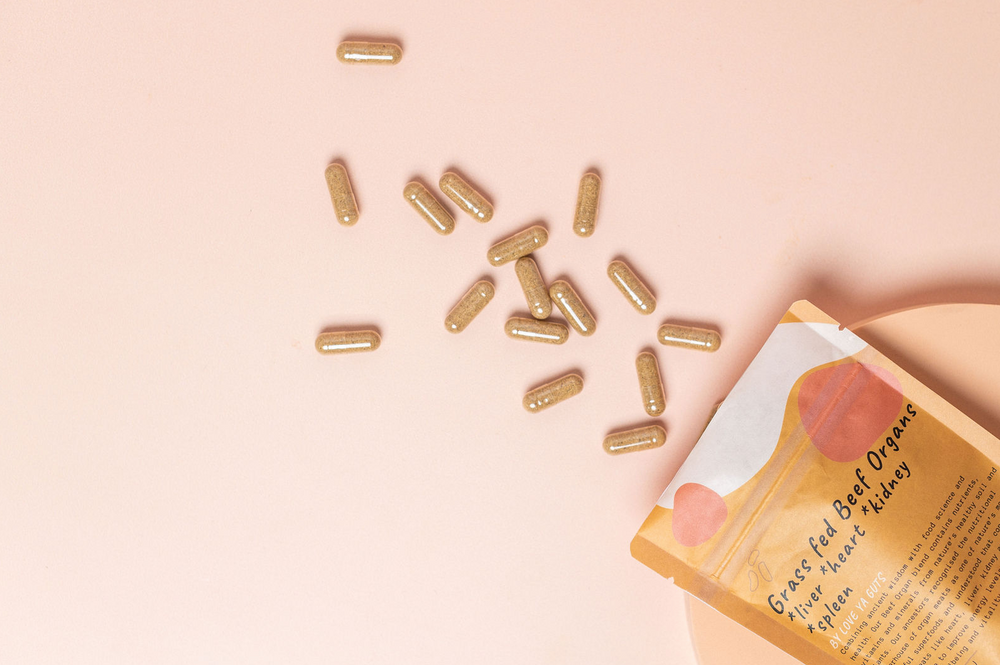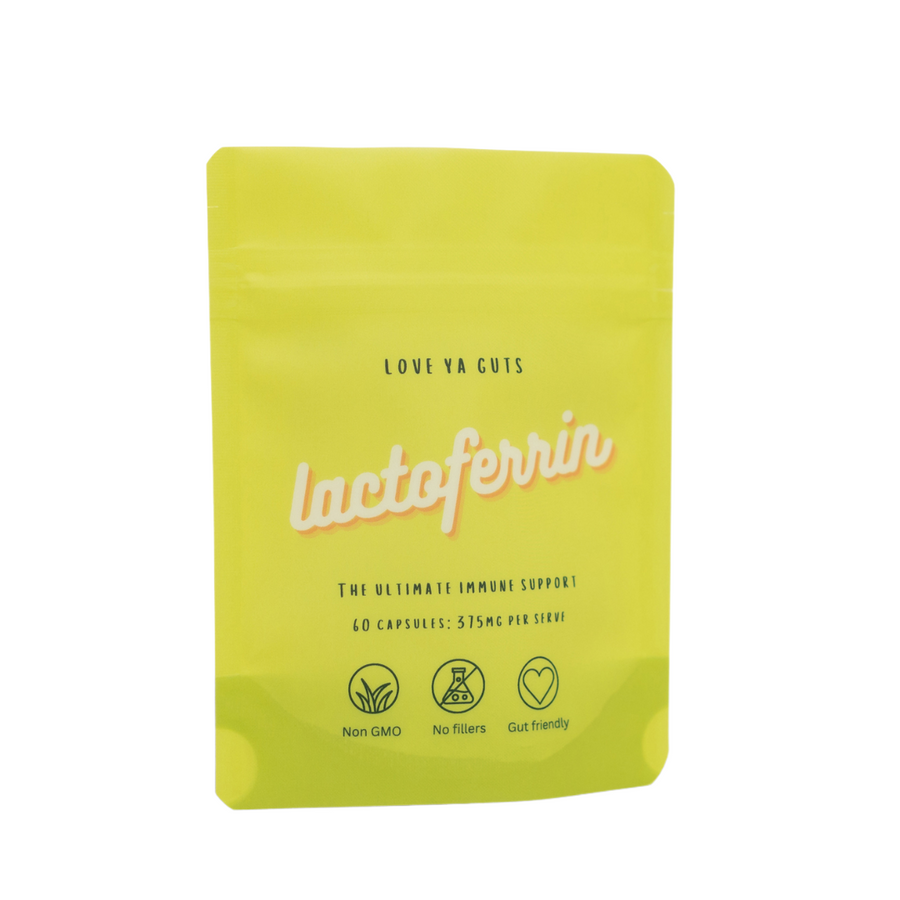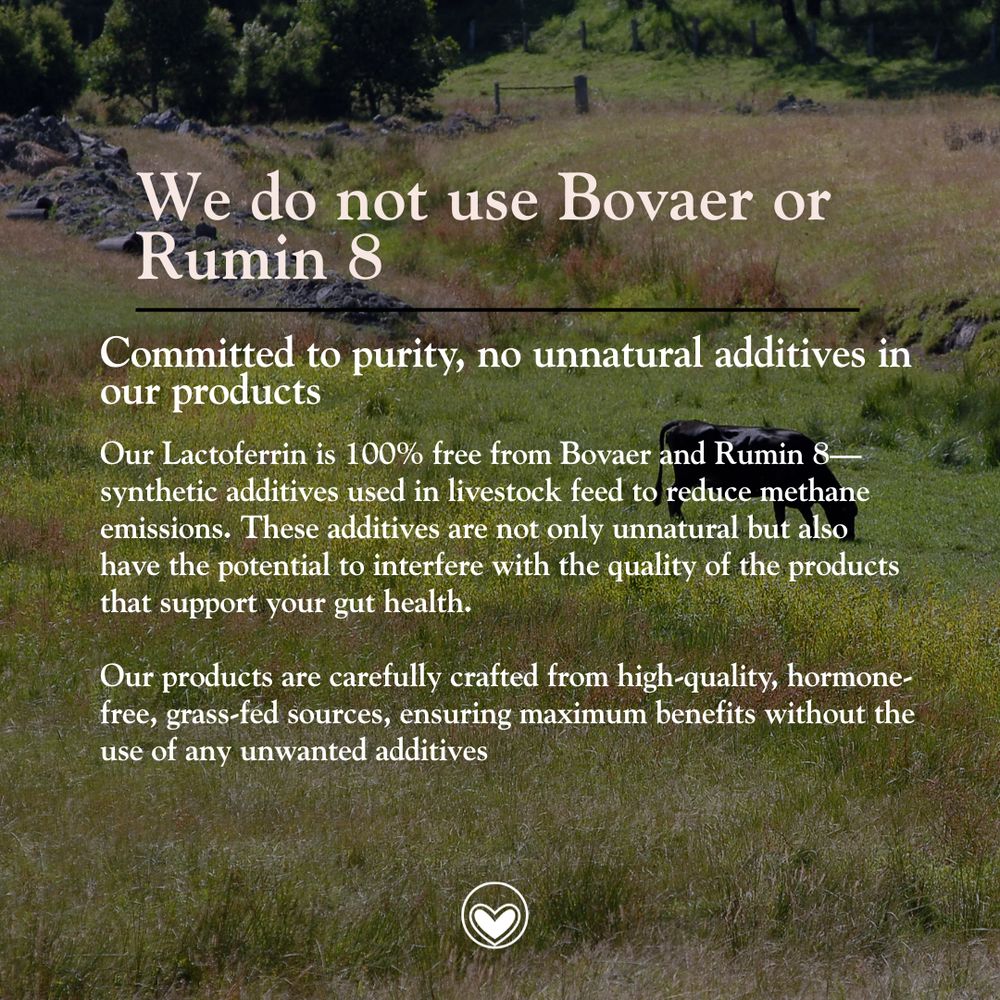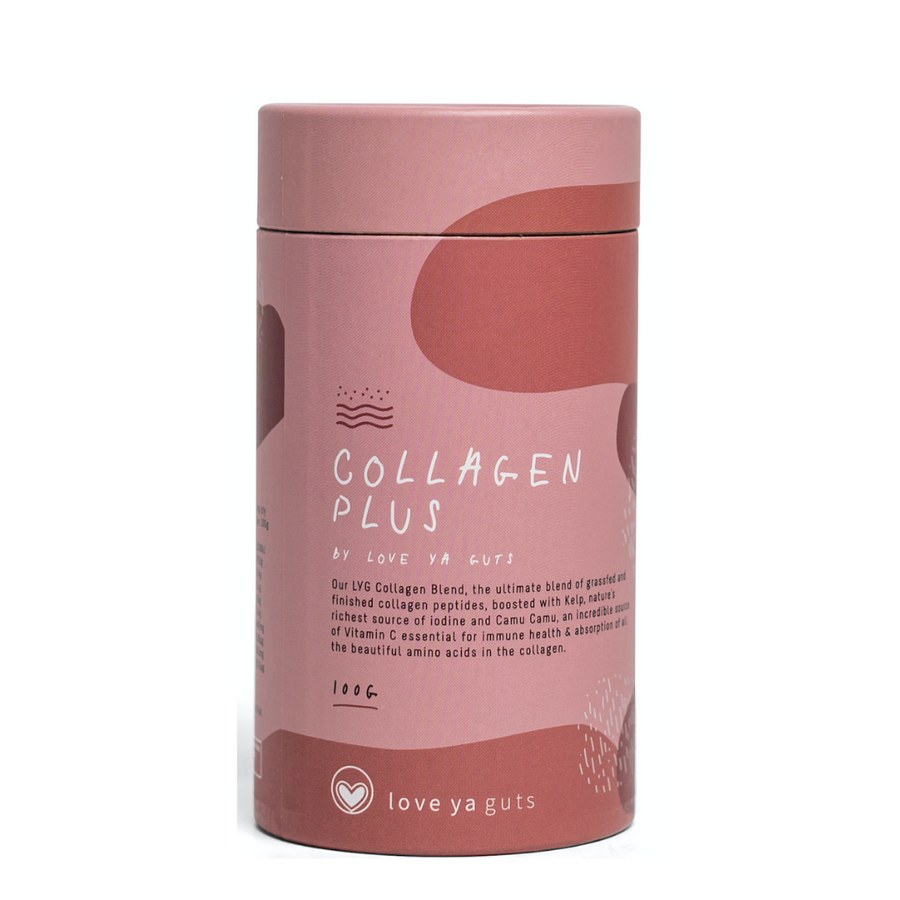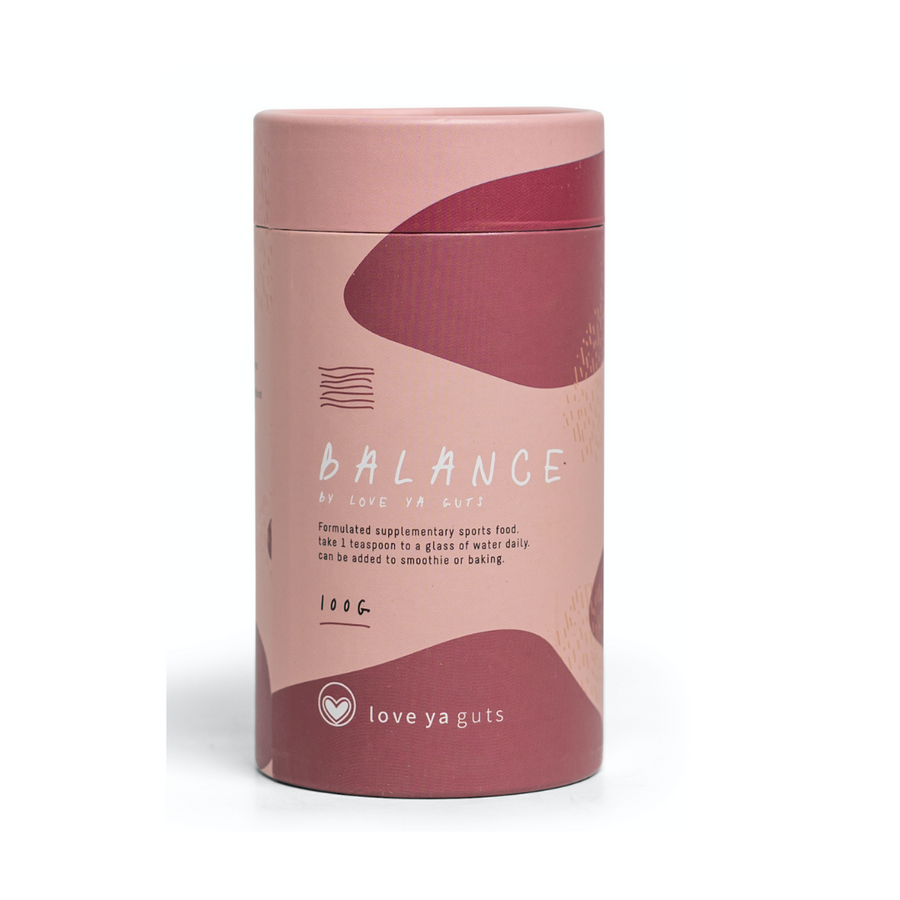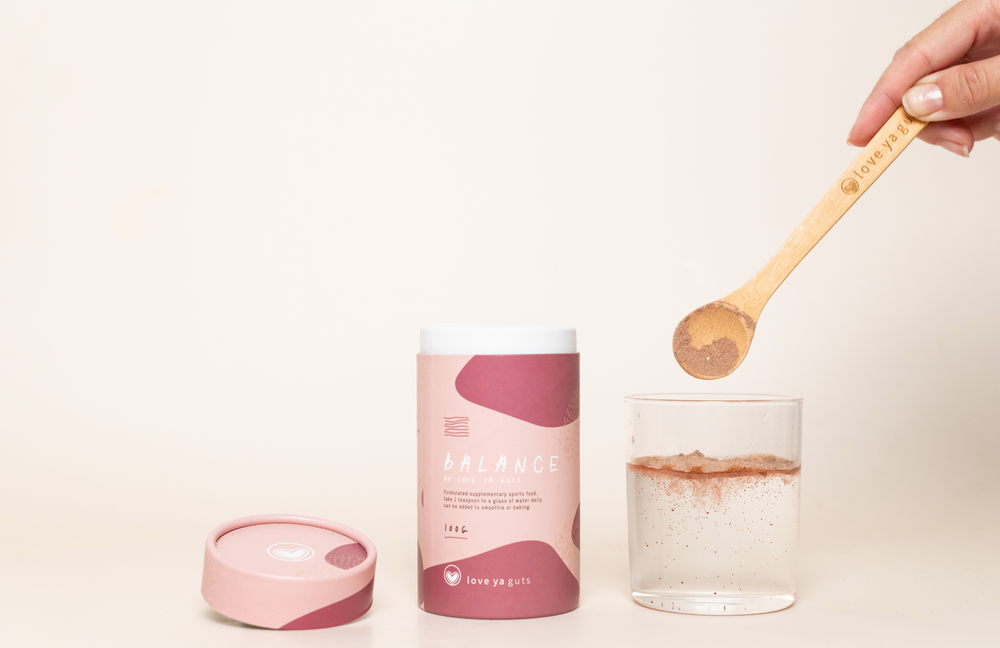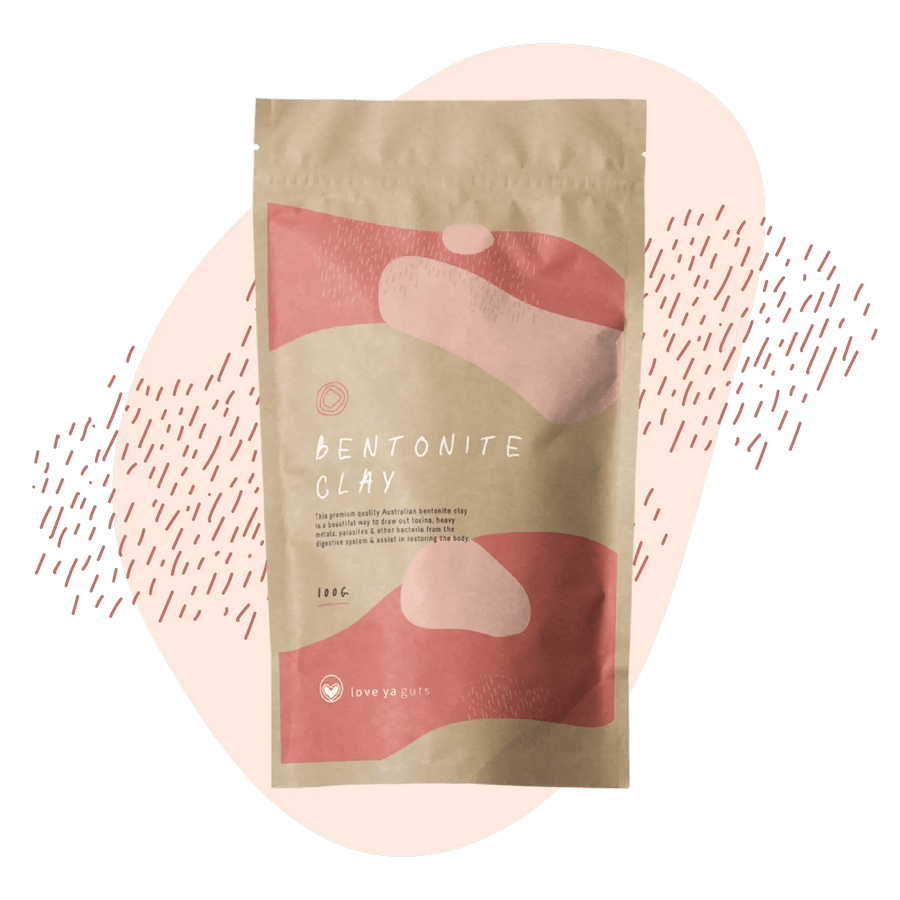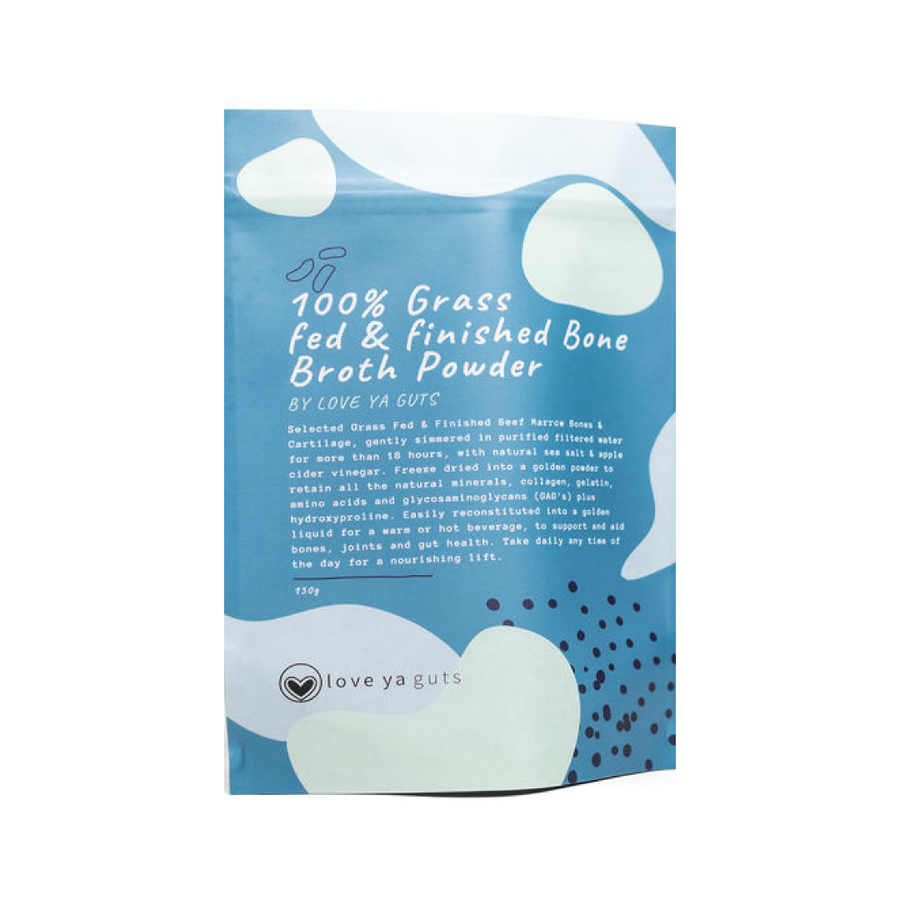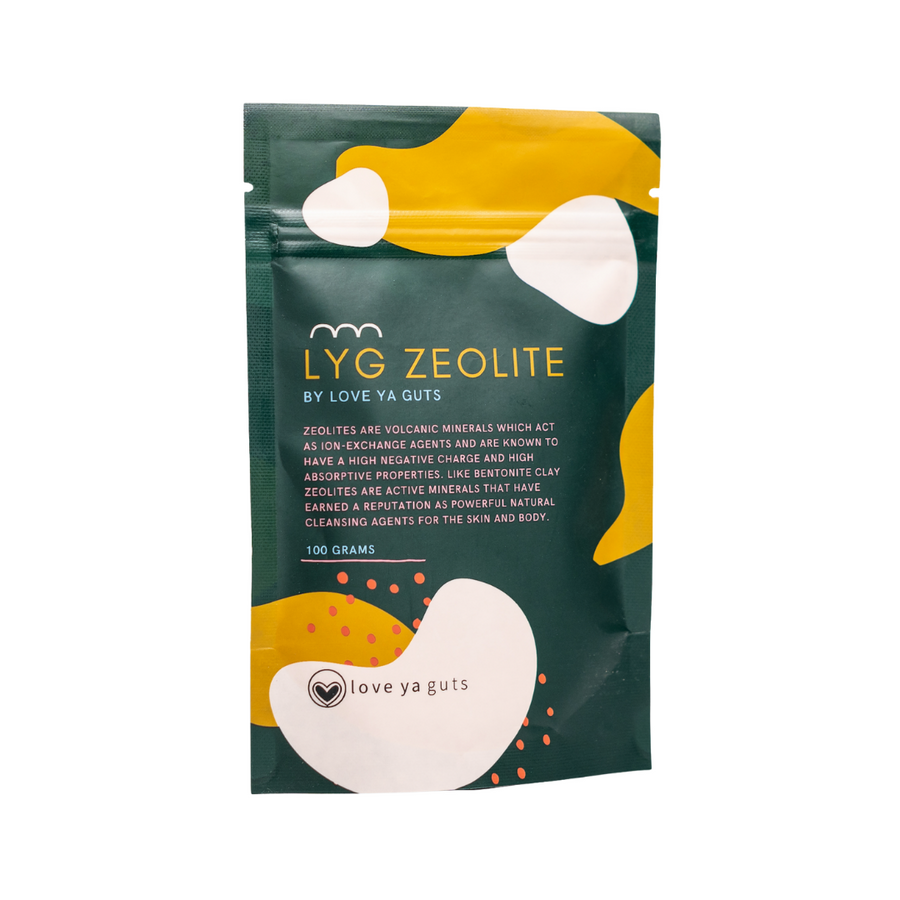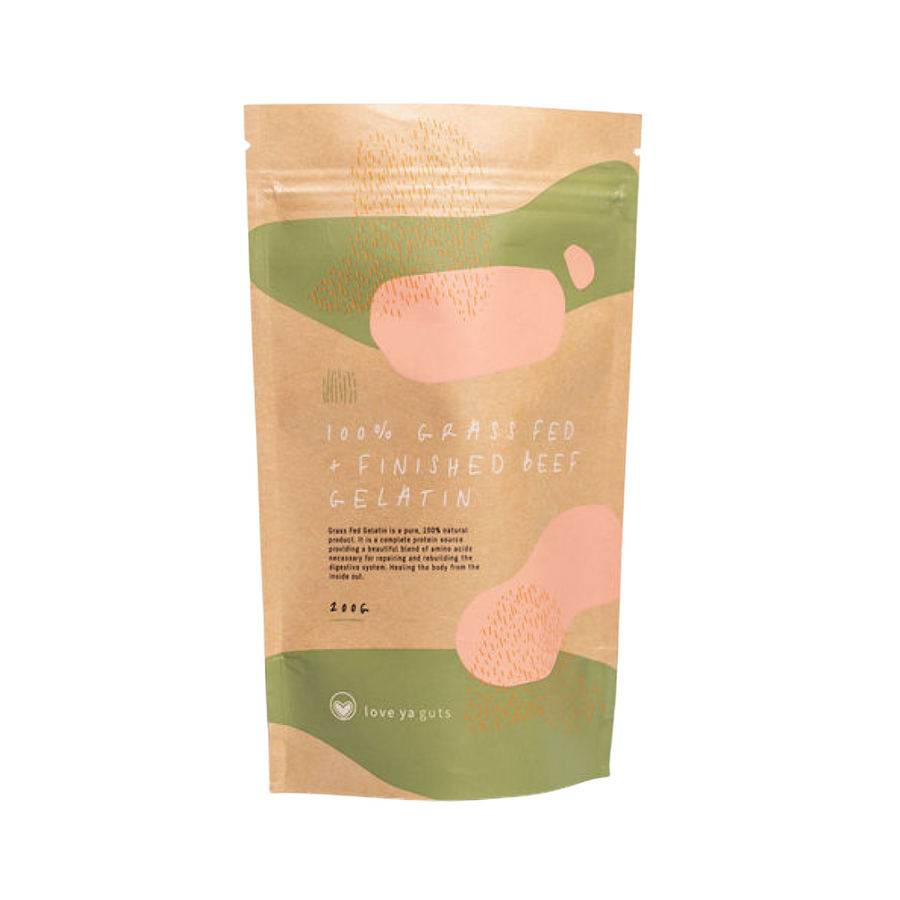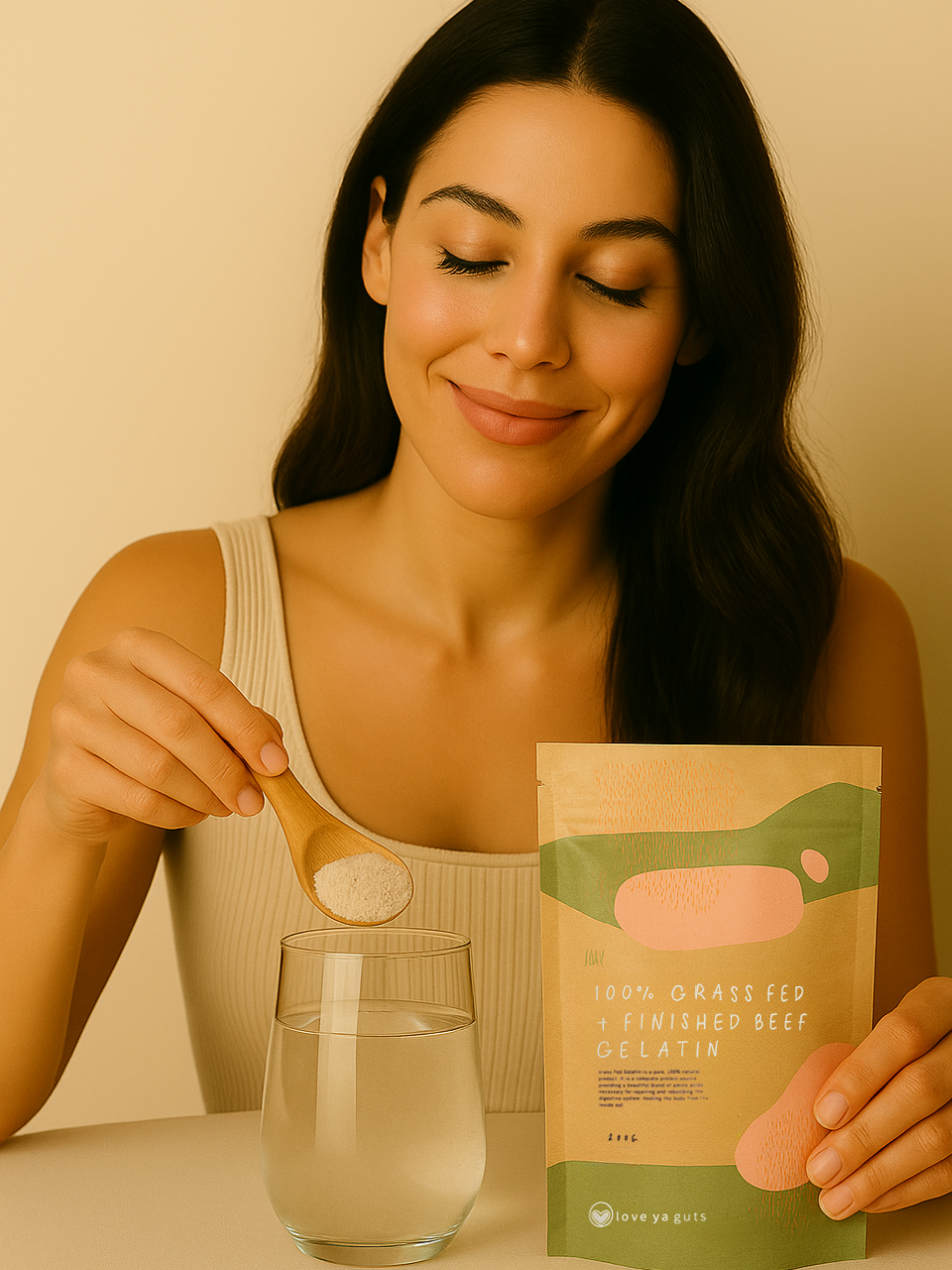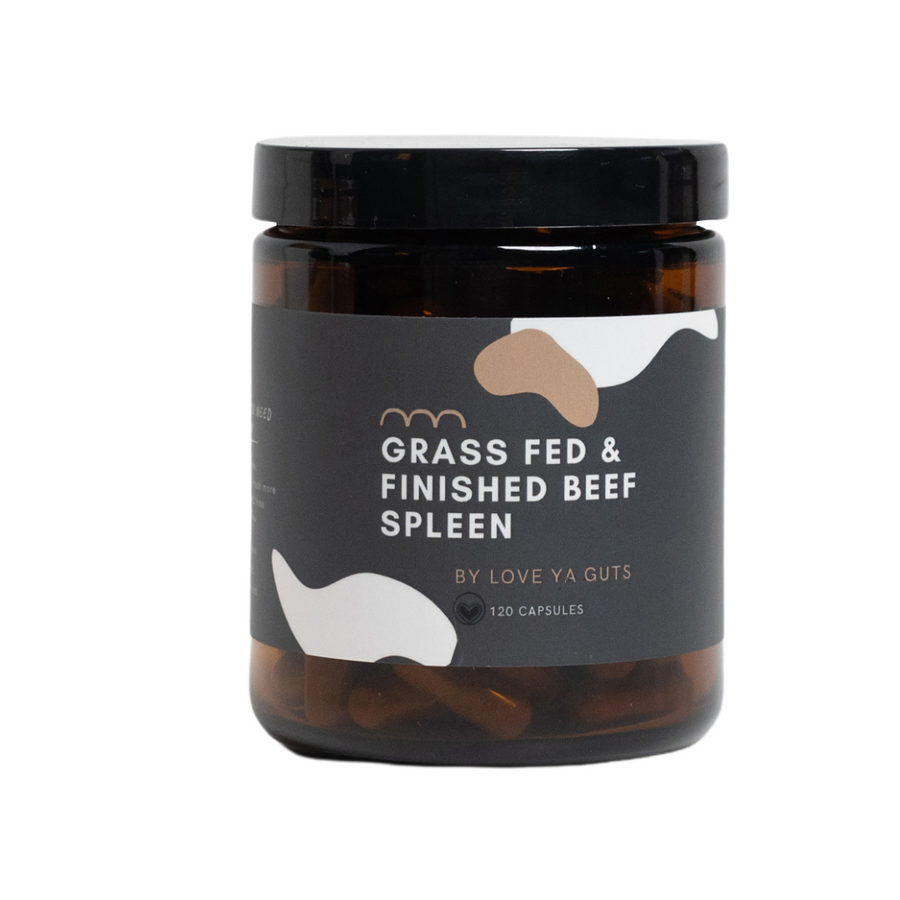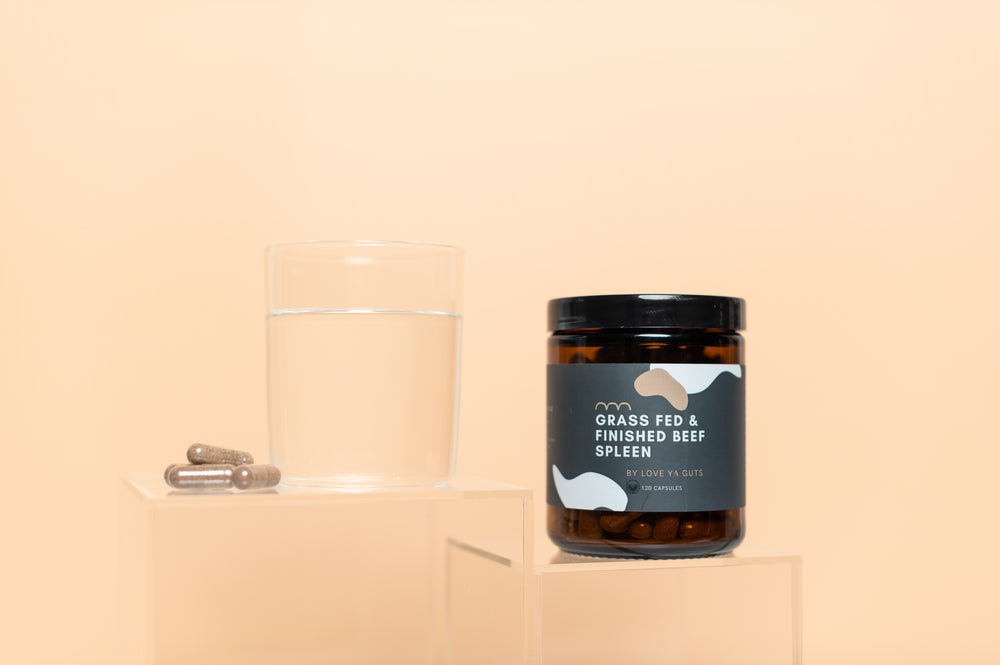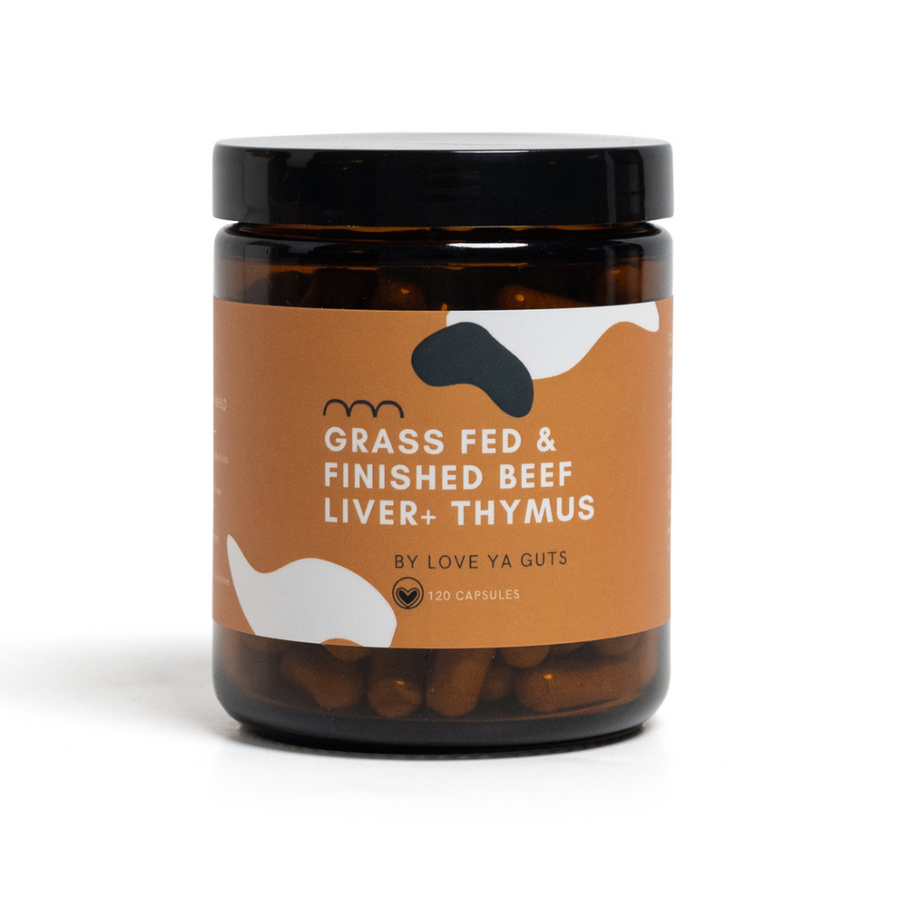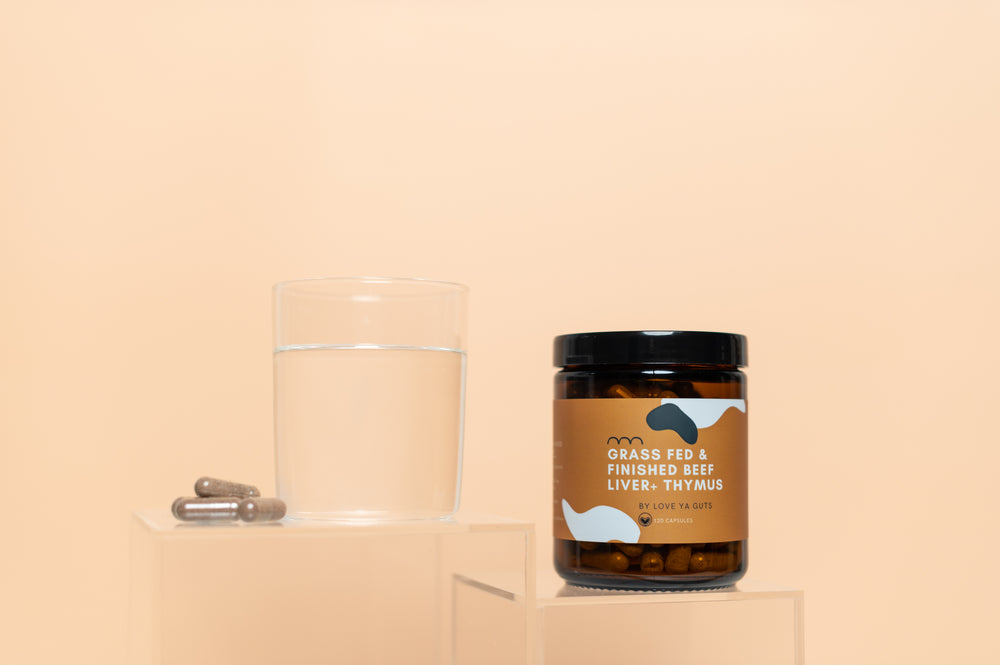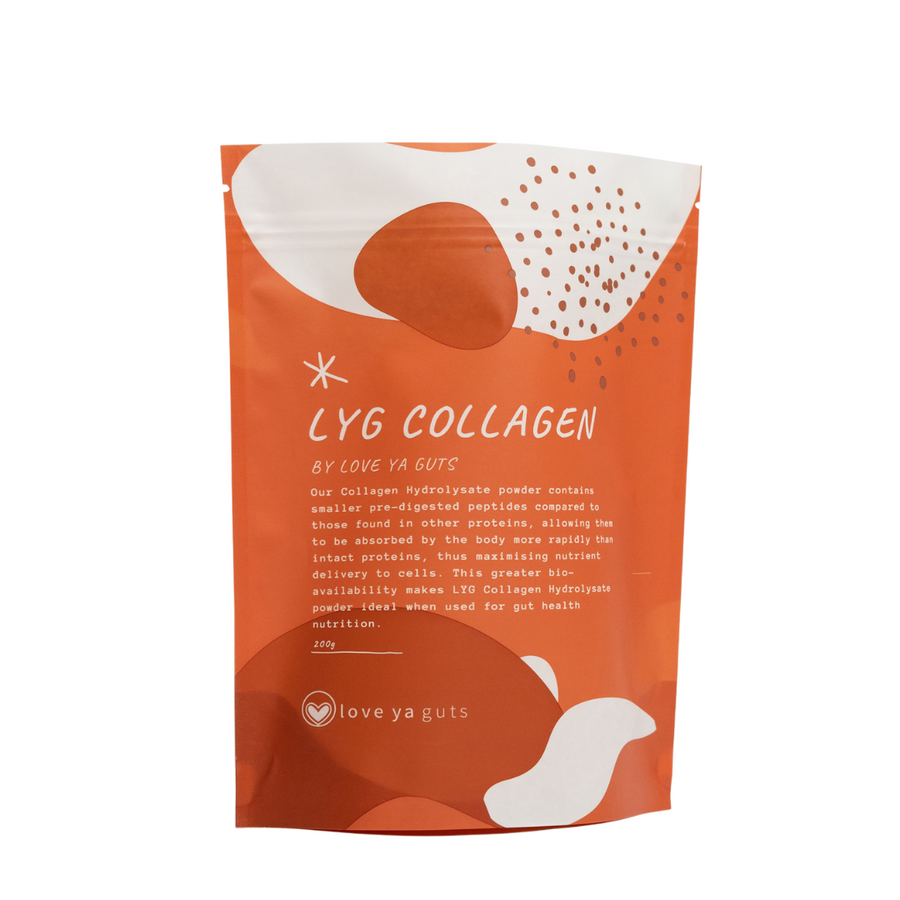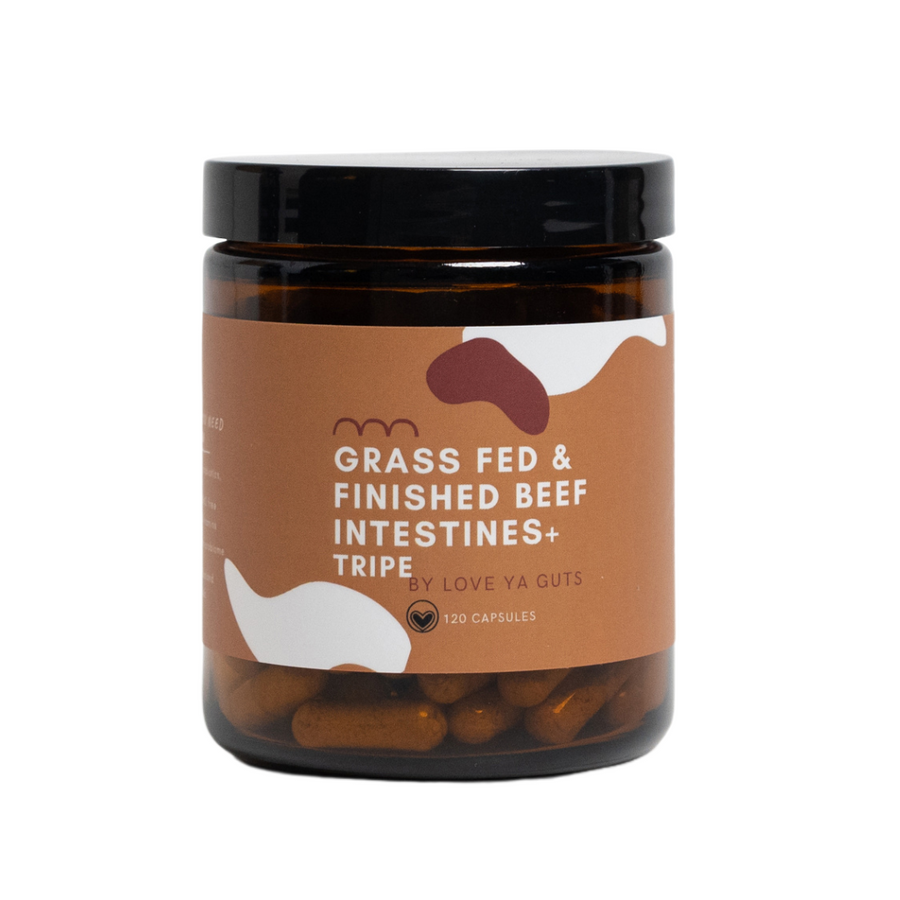Is Reflux just a case of too much or too little stomach acid?
Indigestion (referring to reflux, heartburn, fullness, bloating, gassy) is often associated back to stomach acid and the question of whether you have too much or too little. But it is important to be aware that there could be a few things causing indigestion that all go hand in hand.
The most common are:
-
food
-
dysbiosis
-
stomach acid levels
Let’s first look at what stomach acid is and it’s purpose and then we can approach this topic best by looking at how to treat the main causes of reflux/ indigestion.
Stomach acid and what is it’s purpose?
Stomach acid essentially starts the entire digestive process. As soon as food enters the stomach, it starts the production of stomach acid (also known as hydrochloric acid- HCl).
Why is stomach acid essential?
-
digestion of proteins
-
absorption of minerals
-
control of parasites / fungi/ bacteria
-
signals to other parts of the GI tract that food is on it’s way
SYMPTOMS OF TOO LITTLE STOMACH ACID:
-
burping/ belching
-
feeling excessively full after eating i.e. like food just sits in your stomach
-
feeling bloated
-
reflux, heartburn, indigestion
SYMPTOMS OF TOO MUCH STOMACH ACID:
-
burping/ belching
-
Feeling excessively full after eating i.e. like food just sits in your stomach.
-
feeling bloated
-
reflux/ heartburn/ indigestion
-
upper abdominal pain or discomfort
-
fatty-food intolerance
-
nausea and occasional vomiting
(These symptoms were summarised from Dr Michael Ruscio’s in depth discussion on stomach acid— He has done some great interviews about this topic and related topics such as GERD)
As you can see both too much and too little can present with very similar symptoms, but the MOST important thing to remember is that when you ensure you have the correct levels of acid in your stomach, this will resolve both list of symptoms. We will get to what you can do to ensure your stomach acid levels come back to normal..regardless if you now have too much or too little.
THE MEDICATION ROUTE
When someone presents with indigestion (“indigestion is simply a catchall term for any of the following: reflux, heartburn, burping, abdominal pain, bloating and feeling of fullness). 9 times out of ten they have also been to see their doctor and treated for too much stomach acid and therefor will be prescribed some kind of medication that lowers stomach acid. This is where the issue lies. We now know that indigestion could actually be caused by too little stomach acid SO putting a blanket treatment approach on this could actually have major adverse affects.
These medications that lower or block stomach acid, when used for prolonged periods of time carry risk of side effects that cause significant problems (all of which are associated with low levels of stomach acid):
-
Development of SIBO/ fungal overgrowth
-
nutrient malabsorption (calcium, iron, magnesium and B12)
-
osteoporosis
What concerns me most is that these medications are given out WAY too often to treat indigestion, with the conclusion that all indigestion is caused by too much stomach acid.
BUT there is a much more logical approach to treating indigestion (remember this is a all in one term for reflux, bloating, gas, heartburn etc)
BEST WAY TO TREAT INDIGESTION a.k.a reflux (I like to take this in stages)
#1
The foundation to treating indigestion should always start with nutrition. If this doesn’t bring relief then you can start to look into other options.
The best place to start is to remove foods that may have an inflammatory or reactive component for you. Across all plains of evidence the most common are refined sugar, wheat, dairy, caffeine, spicy foods, alcohol and nightshades.
I am sure if you suffer from indigestion you have probably caught yourself saying something like, ‘I notice I get indigestion if I eat …..(fill in the gap).’ So this certainly is an indication that food can provocative this.
WHY? Just to geek out a little.
You might have already heard of histamines. When people have seasonal allergies, they have high levels of histamine and find relief when they take an antihistamine. Well, Allergens and inflammatory foods cause your body to release histamines. Histamines actually signal your stomach to produce acid. So, by reducing allergens/ intolerances, you can lower histamine and improve indigestion.
So, when we look at removing inflammatory foods and allergens there are a few approaches:
BUT most will eliminate the most common triggers of refined sugar, wheat, dairy, spicy food, nightshades.
-
Food Elimination Diet (read our other blog post on food intolerances/ sensitivities/ allergies).
-
You could follow a paleo approach and see if this improves your symptoms
-
A low FODMAP diet may also be helpful (recommended under the guidance of a practitioner)
-
Listen to your body – which foods work for you or not
-
A low histamine diet could be really helpful as well – reserve this for later on down the road once you’ve tried the others.
It is common, that if you start at the top (and most simplest) i.e. food elimination diet Then you will find your indigestion symptoms will go away. Why? You have simply cut out the foods that are causing inflammation and altering stomach acid levels.
#2
TREAT DYSBIOSIS.
This is when the bacteria in our GI tract are unbalanced. I.e more of an overgrowth of ‘bad’ bacteria/ pathogens/ fungi.
In any case, it is more an issue of re-establishing a healthy level of good bacteria rather than focusing on strict eradication of the bad.
To avoid unnecessary testing, there are a few questions to ask first.
-
How healthy your Digestive system is?
-
How healthy your immune system is?
There are many lifestyle factors that you can first implement in both triggers to improve your digestive and immune system and therefore improve your micro biome environment!
i.e. nutrition (as above), reducing stress/ inflammation, sleep, movement etc.
You could then go down the testing route for two most common triggers of dysbiosis, which are:
-
H. plyori
-
small intestinal bacterial overgrowth (SIBO)
There is a little speculation over the specifics of these two. The treatment of these can improve indigestion.
# 3
The THIRD THING is then addressing stomach acid
LOW STOMACH ACID
As we see above the symptoms of both are SO similar… but there are a few things that would put you at an increased risk of both.
Any of the following factors increases the likelihood that you have low stomach acid:
-
You have an autoimmune disease e.g. Rheumatoid arthritis, Type 1 diabetes, Celiac Disease, Crohn’s Disease, Thyroid Disease any stomach autoimmunity.
-
Anemia (malabsorption of iron and B vitamins)
-
Age (as a general rule, the older you are the less stomach acid production)
-
Chronic use of painkillers, antibiotics or other stomach irritants.
HIGH STOMACH ACID
High stomach acid is typically caused by two things:
-
younger age
-
food
-
dysbiosis
High stomach acid typically leads to the development of stomach ulcers (which have all the same symptoms of Too much stomach acid).
To go into how to specifically Increase stomach acid is beyond the scope of this blog (i.e I would be here forever). So the best approach is to first go back to #1 that I have recommended above and then #2 (which both really are quite similar). And if nothing improves then I would recommend seeing your health practitioner and they can go down the rabbit hole of HCl supplementation.
To decrease stomach acid, the most effective way is to address food and dysbiosis as above!
Discover How Love Ya Guts Box Can Help Transform Your Gut Health
- Get to the root cause of bloating rather than just treating symptoms
- Beat Reflux, Heartburn & Low stomach acid
- Soothes the stomach and assist with issues such as IBS symptoms so you can feel comfortable within your body
- Get rid of sugar cravings
- Boosts your metabolism & control blood sugar to make weight loss almost effortless
- Balance hormones so your body can function how it was meant to but also help with having a balanced mood








